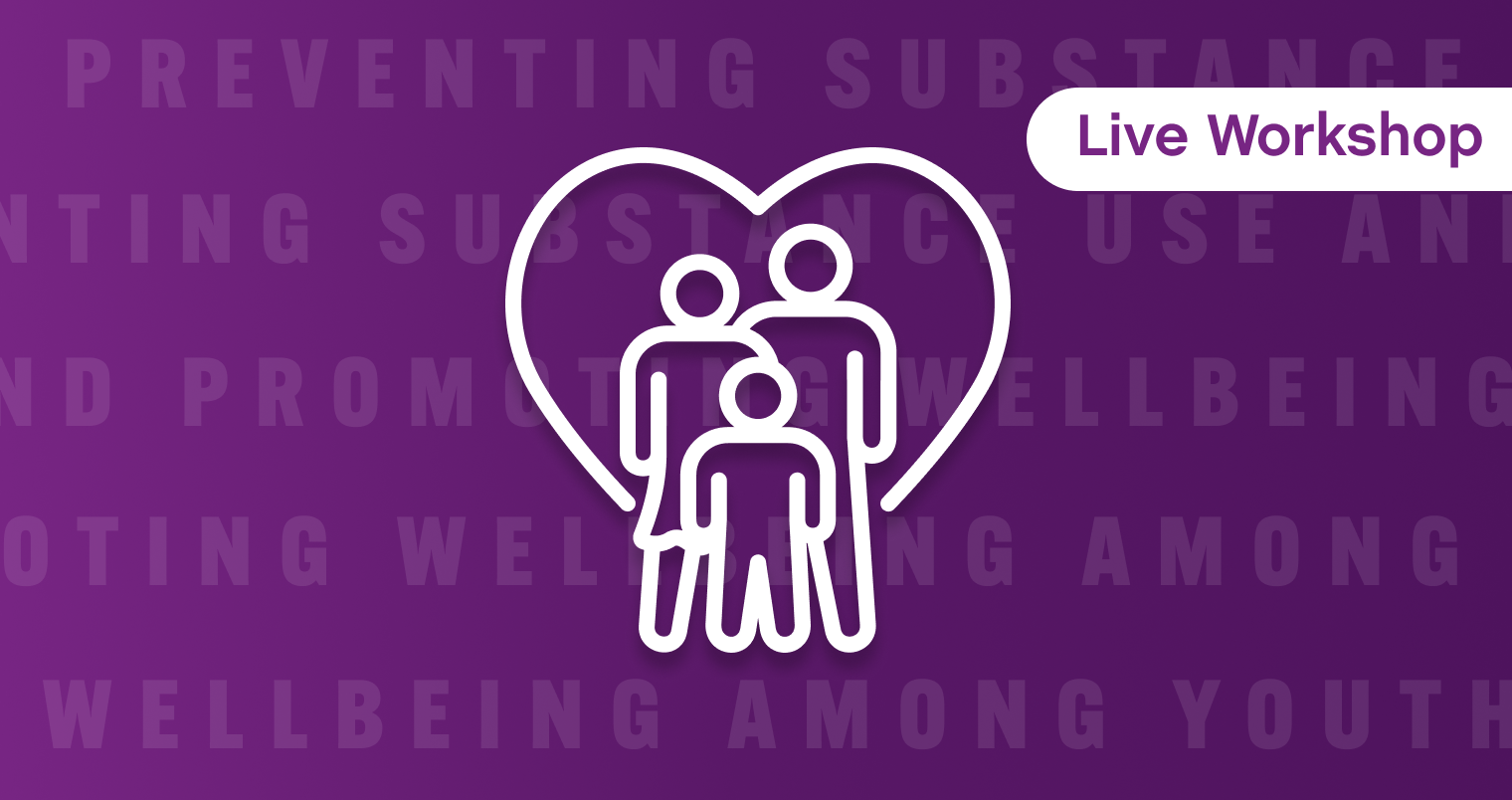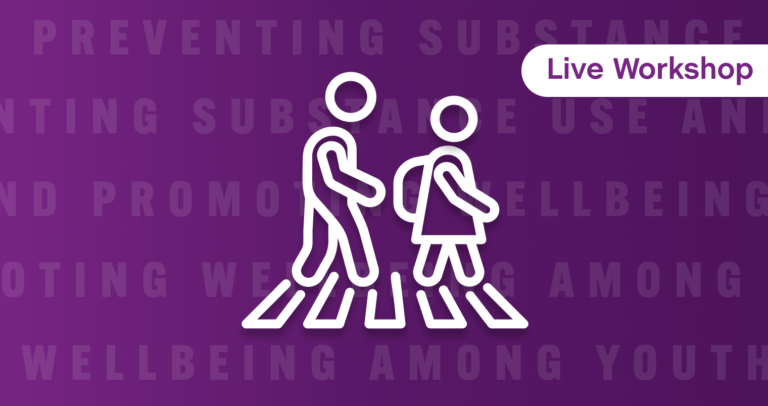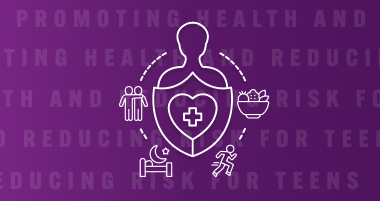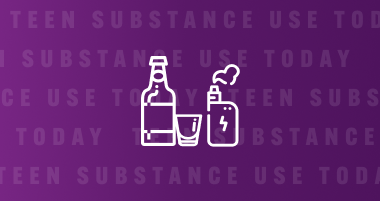
Preventing Substance Use and Promoting Wellbeing Among Youth
Professional Development Series
We translate our expertise into trainings on prevention, early intervention and risk management to foster resilience and wellbeing in youth.
Our research-based curriculum is designed to meet the needs of the professional prevention workforce, educators and other youth-serving professionals.
These engaging, interactive trainings address a range of subjects, from key principles of substance use prevention to deep dives into specific substances (like tobacco/nicotine, vaping, alcohol, marijuana, prescription medications, and fentanyl) and key considerations for effective intervention. Topics can be combined in any way to meet the need of the audience.
Learn more about the different ways we offer this course:

Individual Session
Contact us for more information

Series
Contact us for more information
Course Overview
We translate our expertise into trainings on prevention, early intervention and risk management to foster resilience and wellbeing in youth.
Our research-based curriculum is designed to meet the needs of the professional prevention workforce, educators and other youth-serving professionals.
These engaging, interactive trainings address a range of subjects, from key principles of substance use prevention to deep dives into specific substances (like tobacco/nicotine, vaping, alcohol, marijuana, prescription medications, and fentanyl) and key considerations for effective intervention. Topics can be combined in any way to meet the need of the audience.
Course Overview
This series of professional development workshops can be delivered as 1–2-hour standalone sessions or combined in any way to address the interest/needs of the audience. Delivered by Partnership’s prevention experts, learners will discover focused, actionable insights that provide a broader understanding of protective factors that promote the health and well-being of youth, as well as a deeper appreciation for the factors that increase the risk of substance use and associated mental and behavioral health challenges among young people. The live (virtual or in-person) format is highly engaging and interactive and allows for questions and answers with Partnership’s Prevention team.
Learning Objectives
By taking this course, participants will:
- Deepen their awareness of mental and behavioral health challenges in young people and the importance of building youth resilience to protect against substance use and related risks
- Understand the prevalence and basic risk and protective factors associated with the most common forms of substance use and associated mental and behavioral health challenges among youth
- Understand how to identify signs of risk and intervene early to support a young person in need
Course Outline
The list below reflects the core curriculum. Additional topics may be introduced if deemed relevant/appropriate and within our area of expertise.
- Key Principles of Prevention Science and Practice
- An Earlier and Broader Approach to Building Youth Resilience
- Understanding the Risks for Youth Substance Use
- Strength-Based Prevention: Health vs. Punitive Approach for Professionals
- What Does and Doesn’t Work Well in Prevention
- Substances Deep Dives (separate talks on each, can be combined as needed):
- Alcohol
- Tobacco/nicotine products
- Marijuana/Cannabis
- Prescription drugs, fentanyl, and harm reduction
- Emerging Drug Trends
- Addressing Co-Occurring Mental Health & Substance Use Issues
- Social Isolation/Loneliness and Suicide Prevention
- Social Media Safety
- Bullying/Cyberbullying
- Gambling Prevention and the Cost of Gaming
- The Importance of Sleep for Children and Teens
- Health Promotion and Absenteeism Reduction through School and Community Connection
- Professionalism, Ethics, and Effective Communication for Prevention Professionals
- How to Engage Parents & Caregivers
- Navigating the Addiction Treatment Space
- Key Considerations for Effective Intervention
- Professional Self-Care: Minimizing Burnout & Compassion Fatigue
Your Instructors
Course Completion & Continuing Education (CE) Information
Upon request, a certificate of completion can be sent after completion of the course. Contact our team at solutions@toendaddiction.org for more information.
Pricing Details
Our Refund Policy, Cancellation Policy, and Accessibility Accommodations
- Full refunds are issued only if a training is canceled by Partnership to End Addiction or at the discretion of Partnership to End Addiction based on written request.
- For partial refund of a Partnership to End Addiction training, registrants must withdraw prior to beginning the course.
- We value inclusion and access for all participants and have worked to design the training for a variety of learners. Content includes non-captioned audio materials.
Technical Information
This course is live (virtual or in-person). Course questions can be directed to: solutions@toendaddiction.org
System requirements
- Operating Systems: Windows XP or higher, MacOS 9 or higher, Android 4.0 or higher
- Internet browser: Internet Explorer 9.0 or higher, Google Chrome, Firefox 10.0 or higher
- Broadband Internet connection: Cable, High-speed DSL & any other medium that is internet accessible
- Media viewing requirements: Adobe Reader, Flash Player, & HTML5







